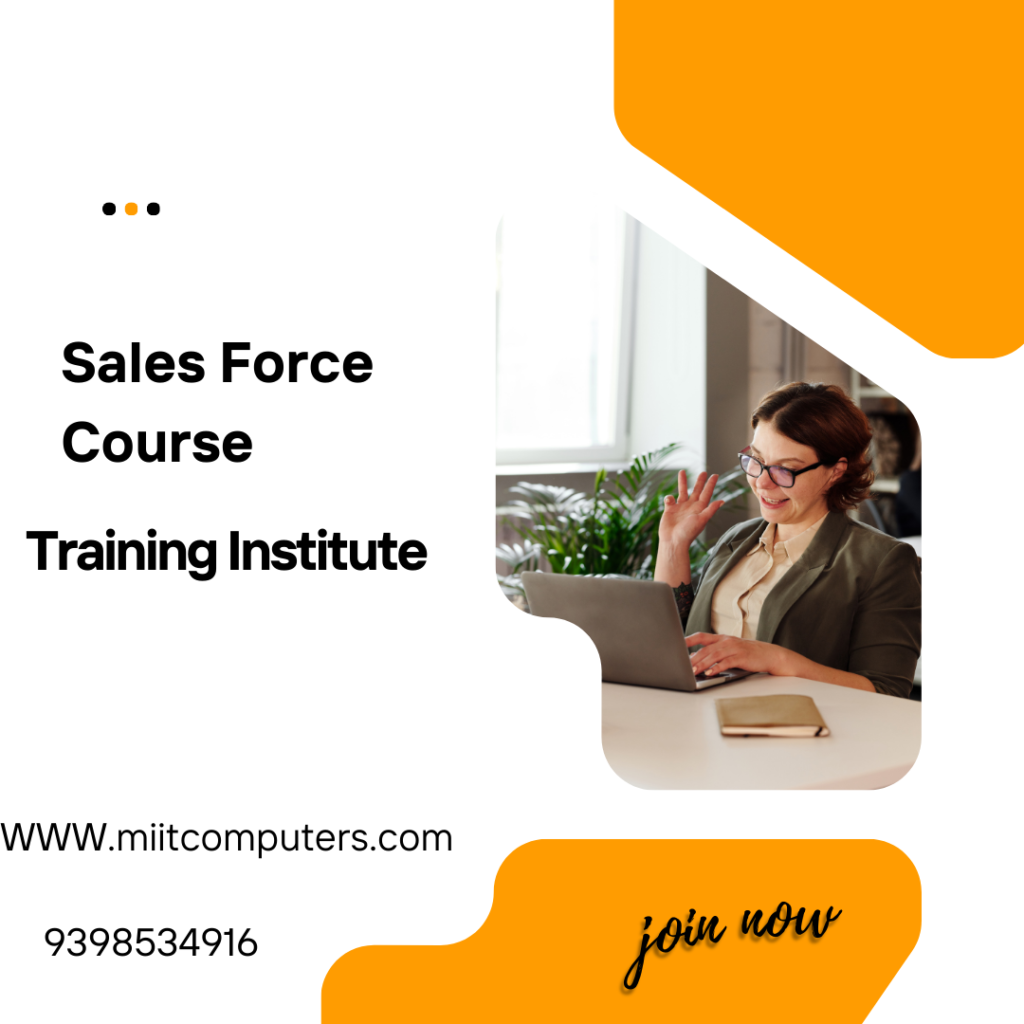SALESFORCE
What Is Sales Forse?
A Salesforce course description typically outlines the objectives, content, and target audience of the training program. Here’s a general overview of what you can expect in a Salesforce course description. Sales Forse Course In Hayathnagar Hyderabad.
- Introduction to Salesforce: Overview of CRM, cloud computing, and the Salesforce platform. Navigation and key features.
General Objectives:
- Understanding the Salesforce Platform: To provide a comprehensive understanding of the Salesforce ecosystem, its architecture, different clouds (Sales Cloud, Service Cloud, Marketing Cloud, etc.), and core functionalities.
- Developing Practical Skills: To equip participants with hands-on skills to configure, administer, develop, and utilize Salesforce effectively for their specific roles and business needs.
- Improving Business Processes: To teach how Salesforce can be used to automate workflows, streamline sales, marketing, and customer service processes, and improve overall operational efficiency.
- Data Management and Analysis: To enable users to manage data effectively, generate insightful reports, and build dashboards for better decision-making.
- Customization and Configuration: To train participants on how to customize the Salesforce platform to meet specific organizational requirements, including user interface adjustments, creating custom objects and fields, and managing security settings.
Features and Benefits:
The description might also highlight:
- Hands-on training: Emphasizing practical exercises and real-world scenarios.
- Experienced instructors: Mentioning the expertise and industry experience of the trainers.
- Certification preparation: Indicating if the course prepares for specific Salesforce certifications.
- Best Sales Forse Course In Hayathnagar Hyderabad.
- Placement assistance: If the course includes job placement support.
- Course format: Specifying whether it’s online, in-person, self-paced, or instructor-led.
- Learning materials: Detailing the resources provided, such as course notes, recordings, and access to a Salesforce environment.
By reading a detailed Salesforce course description, you should get a clear understanding of what you will learn, who the course is for, and how it will benefit you in achieving your Salesforce-related goals. Remember to look for descriptions that align with your specific interests and career aspirations within the Salesforce ecosystem. Sales Force Course Training With Placements In hayathnagar Hyderabad.

Sales Force Course - Frequently Asked Questions
The Salesforce course typically lasts 2 to 3 months, depending on the learning mode (online, offline, or hybrid) and the specific batch schedule.
No prior experience is required. This course is suitable for beginners as well as professionals looking to enhance their knowledge of Salesforce CRM.
The course includes Salesforce fundamentals, administration, configuration, sales cloud, service cloud, reports and dashboards, automation tools, and Apex programming.
You can easily enroll in the Salesforce course by visiting our website or contacting the nearest branch for more details on the course schedule and fees.
You will work with the Salesforce platform, utilizing its CRM tools, automation features, and other relevant software applications for managing customer relationships and data.
What Are You Looking For? Come Join Us!
